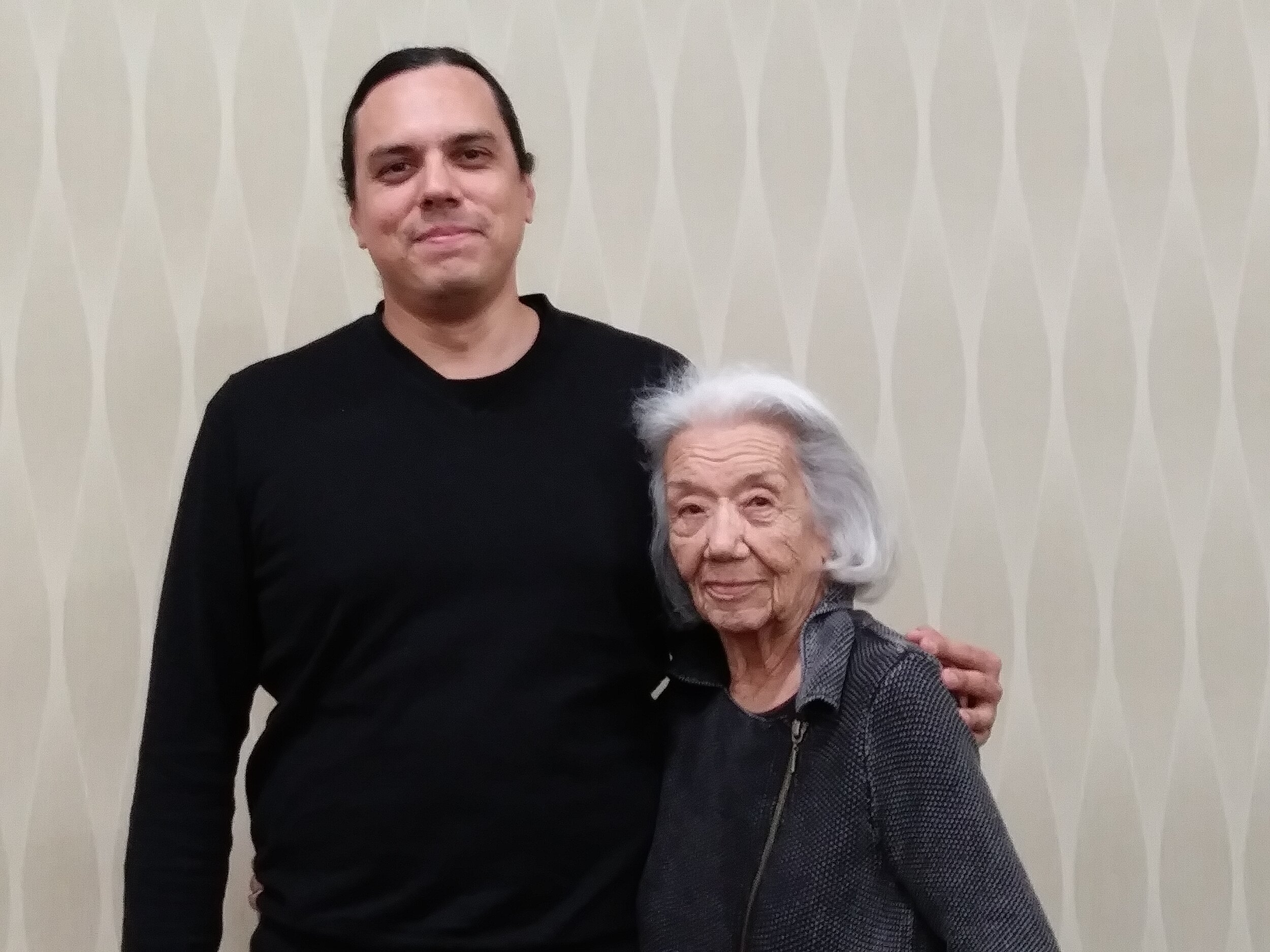by Kateri Bird, OSWS Emerging Writer and Retreat Participant
Author’s Note: The Oceti Sakowin Writers Society holds a special place of fun, knowledge and conversation within me. Since attending my first annual writers’ retreat dona years ago at the encouragement of a friend, I have enjoyed being surrounded by history, language, and the importance of place by the members of the Oceti Sakowin Writers Society. The members are inclusive, supportive and always have great stories. The opportunity to volunteer for the organization’s information/outreach table was no different. Providing resources and scholarship from the members to those in charge of teaching English to South Dakota’s students, I received appreciation for the work that they do, as well as renewed interest in the importance of first-person narratives. I am glad to have attended and represent the Oceti Sakowin Writers Society.
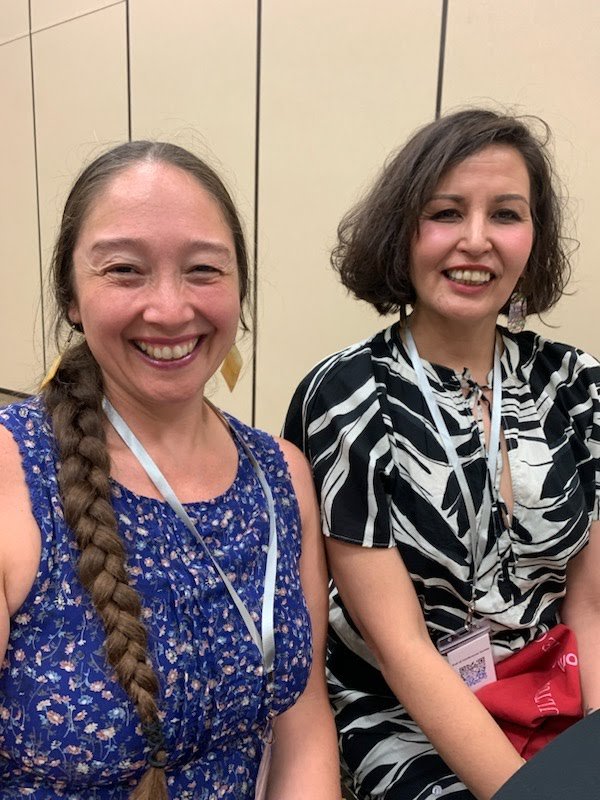

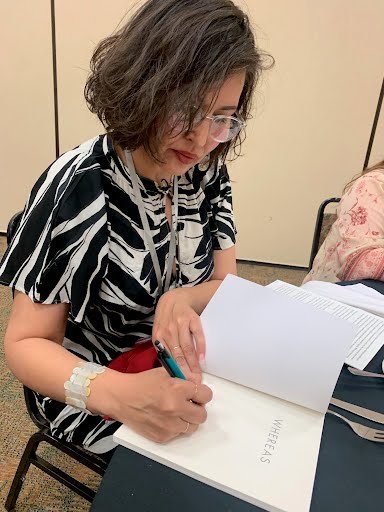
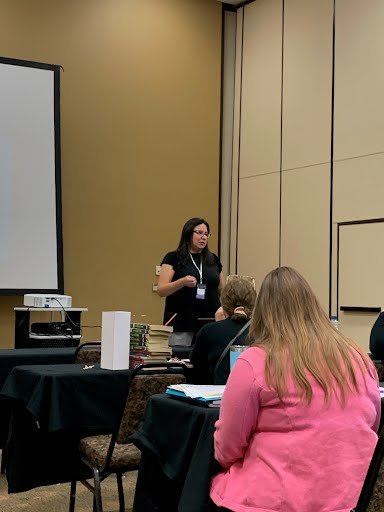
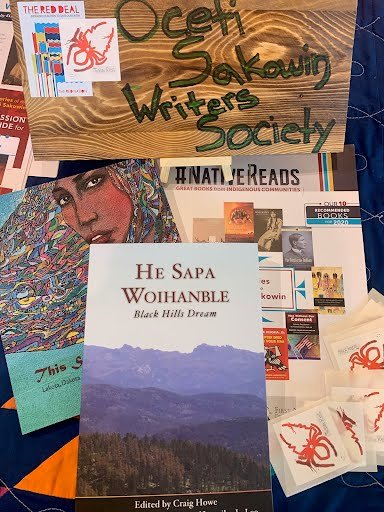
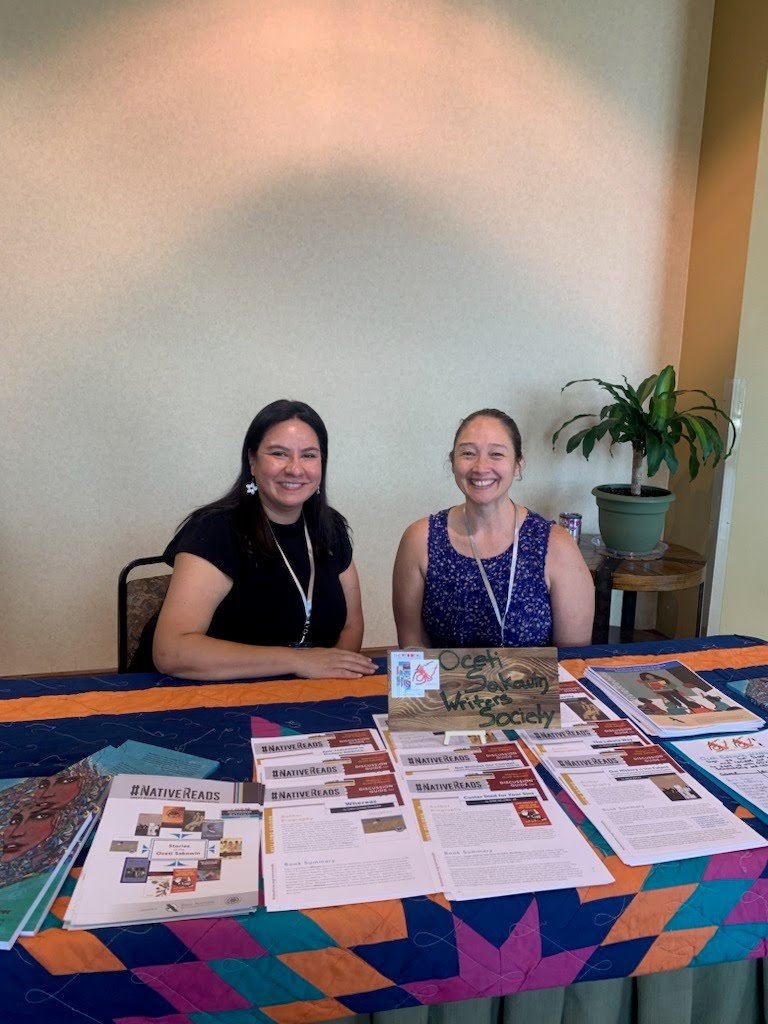
The Conference
The Oceti Sakowin Writers Society was invited to co-sponsor the South Dakota Council of Teachers of English (SDCTE), 2023 annual conference. The South Dakota Council of Teachers of English found a way to support historical accuracy using authentic indigenous voices, and toward’s that end, the Oceti Sakowin Writers Society was able to provide resources, a presence at the conference for questions and information, and contacts for future support.
Photos: Kateri Bird and Layli Long Soldier at SDCTE banquet; Layli’s autograph for Kateri; Layli autographing her book Whereas, OSWS Booth Close-up; Sarah Hernandez and Kateri Bird at OSWS’s booth at SDCTE conference; Sarah Hernandez teaching break-out session on the Oceti Sakowin Literary Tradition during the conference.
The conference was held at the Arrowwood Resort and Conference Center in Oacoma, SD, on June 14th and 15th, 2023. Located on the original lands of the Oceti Sakowin, we acknowledge our relatives at Crow Creek Sioux Tribe and Lower Brule Sioux Tribe who take care of the land and Mni sose still. The South Dakota Council of Teachers of English began in 1941 with the purpose to support, and encourage English teachers, while providing rigorous professional development opportunities that challenge growth and inclusivity within their content area.
Courage to face Challenging Conversations
Challenging current school politics and complicated history in South Dakota, SDCTE devoted this summer’s English Summer YOUniversity and Conference to understanding and facing this history. English teachers, being responsible for the material through which they teach critical and analytical thinking, research skills and writing technique, SDCTE strove to seek out and provide authentic experiences. The Oceti Sakowin Writers Society supported this endeavor with the knowledge and understandings collected within the members of the Societies literary works and a presentation by OSWS Board Treasurer, Professor Sarah Hernandez on the #NativeReads Native Reads | First Nations Development Institute project with OSWS as a community partner. She also shared information about the Oceti Sakowin Oyate Bibliography Project documenting over 200 writing resources. Attending teachers seemed relieved to have the book list, book summaries, specific discussion questions and especially looked forward to the podcasts, saying, “It will be powerful to have the Oceti Sakowin views and comments on the book in the voice of the people whose experience it represents.” Summer YOUniversity title this year is Methods for Using Literature to Teach Difficult History, focusing particularly on Oceti Sakowin authors and the stories from their lands.
Honoring awards were presented for Young Leaders of the year, for a new teacher within 5 yrs, a teacher of the Year award, and Author of the Year, Layli Long Soldier. Layli brought a calm Oceti Sakowin strength in her confident, humble words as she accepted her award, greeting her relatives in the language of her people, followed in English for non-native relatives. Layli began with a poem from her book Whereas (a #NativeReads selection) and continued with a small piece of her educational story, providing hope to those that seek alternative learning paths from high school, ending her talk with the hope and love of working as a writer and professor for poetry.
Topics outside English Class
These teachers have big hearts, and they addressed concerns outside of their content area with each other throughout the two days. These teachers are actively trying to problem-solve the situations of their students that follow them into the classroom. Issues and situations outside of their said English content area, yet which affect them in the classroom just the same. While content and teaching methods were priority, conversation topics were heard throughout the conference about student migration, student home life, challenges of lack of resources, lack of support from administration, students and parents, and safety. While struggling with balancing these concerns, the teachers were able to come together to laugh, offer support and gain information showing a special community for teachers to share, be vulnerable, and problem-solve together, bursting outside their own school silos, proving a strength of what they can do together.
Kateri Bird is a mom, kunsi (grandmother), Indigenous homeschool mom, with a B.A. from the University of Minnesota, Morris in Psychology and Anthropology and Masters in Tribal Administration and Governance from University of Minnesota, Duluth. She is a member of the Sisetuwon Wahpetuwon Dakota Oyate located in what is now South Dakota, where she lives, raises her children and continues to learn her Dakota language, traditional medicines and foods, history and culture, with the conversations of her relatives.



